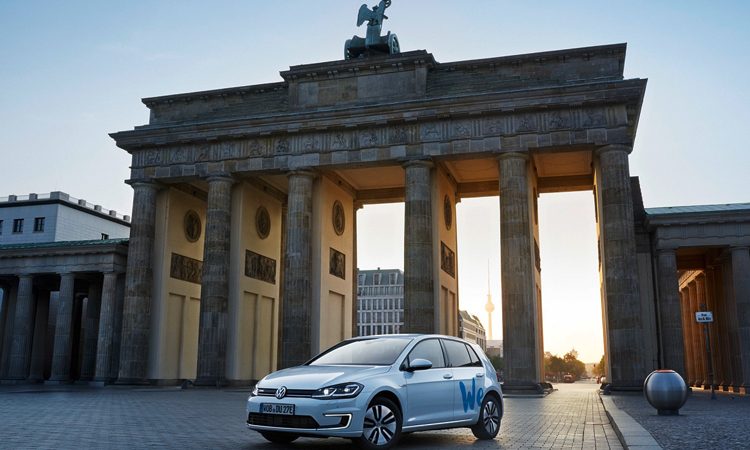Volkswagen launch “We Share” e-mobility car-sharing scheme in Berlin
- Like
- Digg
- Del
- Tumblr
- VKontakte
- Buffer
- Love This
- Odnoklassniki
- Meneame
- Blogger
- Amazon
- Yahoo Mail
- Gmail
- AOL
- Newsvine
- HackerNews
- Evernote
- MySpace
- Mail.ru
- Viadeo
- Line
- Comments
- Yummly
- SMS
- Viber
- Telegram
- Subscribe
- Skype
- Facebook Messenger
- Kakao
- LiveJournal
- Yammer
- Edgar
- Fintel
- Mix
- Instapaper
- Copy Link
Posted: 29 August 2018 | Intelligent Transport | No comments yet
Volkswagen is aiming to emphasise the benefits of e-mobility and incite interest in the technology with its fleet of 2,000 vehicles.


The Volkswagen brand has announced that the extensive all-electric car-sharing initiative, “We Share”, will be launched in Berlin.
“We Share” is the first service in the new ecosystem “Volkswagen We”, aimed at people who do not own a car, offering a free-floating car-sharing scheme with the aim to ensure spontaneous availability of electric vehicles for customers at all times.
Jürgen Stackmann, Volkswagen Brand Board Member for Sales, commented: “We want to motivate young, urban users to engage with e-mobility. The people of Berlin will be the first to enjoy the electrifying experience of our We Share car-sharing offering.”
The first fleet of vehicles to be deployed in Berlin, when the service begins operating in the second quarter of 2019, will comprise of 1,500 e-Golf vehicles. An additional 500 e-up! cars will follow after.
Stackmann added: “Because of the size and density of its population, Berlin is the ideal market and has the greatest potential. Many people who have already tested car-sharing live there – and the numbers keep on growing.”
At a later stage “We Share” will be adding smaller vehicles as micromobility solutions to its fleet of electric cars.
Stackmann said: “We are democratising e-mobility. From 2020, We Share is to support the market introduction of the new generation of our new, all-electric I.D. models and thus make a significant contribution to the Volkswagen brand’s e-mobility offensive.”
Following the launch in Berlin, “We Share” is scheduled to expand to further major cities in Germany. There are also plans to enter core European markets and selected cities in North America from 2020. The primary focus will be on cities with a population of over 1 million.
Philipp Reth, CEO of the Volkswagen subsidiary UMI Urban Mobility International, commented: “The prospects for vehicle on-demand services are very good. The most conservative forecasts for Europe predict annual growth of 15 per cent. We will continue to develop this market and make this form of mobility accessible to an even broader user group.”
Related topics
Air Quality, Alternative Power, Fleet Management & Maintenance, On-Demand Transport
Related organisations
Volkswagen
Related people
Jürgen Stackmann, Philipp Reth








